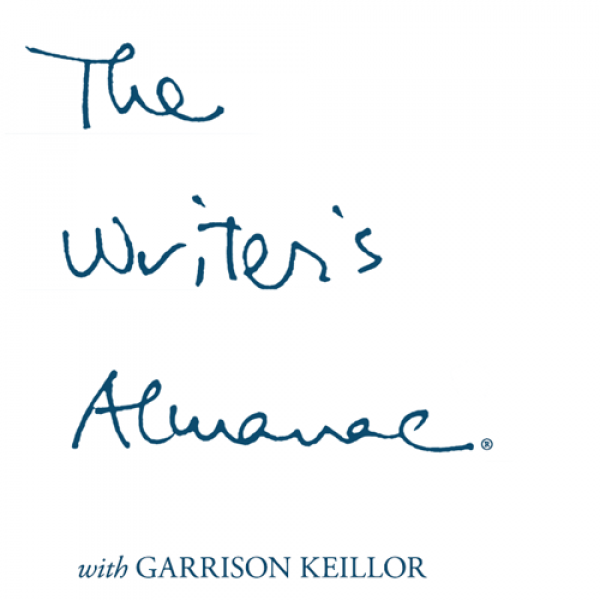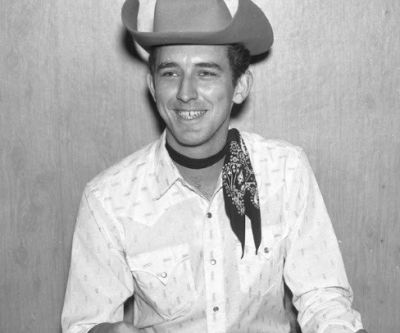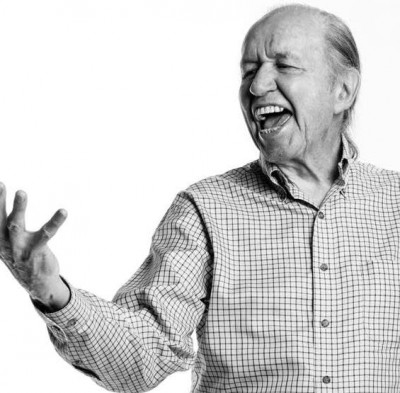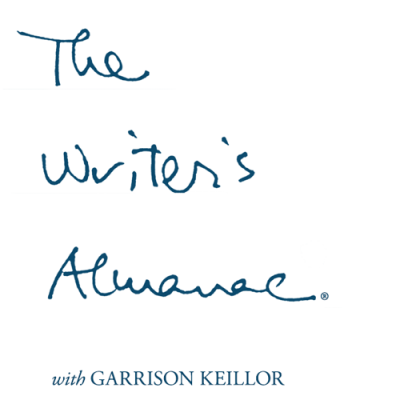December 20, 2018
Tuesday
8:00 p.m.
Minneapolis, MN
Test schedule
A live performance with Robin and Linda Williams at the Cedar Cultural Center
May 20, 2018
Sunday
3:00 p.m.
Lexington, MA
Lexington, MA
A live performance at the Saenger Theatre
April 10, 2018
Tuesday
8:00 p.m.
Tulsa, OK
Tulsa, OK
A live performance at the Brady Theater
March 17, 2018
Saturday
8:00 p.m.
Long Beach, CA
Long Beach, CA
A live performance at the Carpenter Performing Arts Center
March 15, 2018
Thursday
7:00 p.m.
Mobile, AL
Mobile, AL
A live performance at the Saenger Theatre
“Psalm 23” from The Bay Psalm Book. Public domain. (buy now)
The Lord to me a shepherd is,
want therefore shall not I:
He in the folds of tender grass,
doth cause me down to lie:
To waters calm me gently leads
restore my soul doth he:
He doth in paths of righteousness
for his name’s sake lead me.
Yea, though in valley of death’s shade
I walk, none ill I’ll fear:
Because thou art with me, thy rod,
and staff my comfort are.
For me a table thou hast spread,
in presence of my foes:
Thou dost anoint my head with oil;
my cup it overflows.
Goodness and mercy surely shall
all my days follow me:
And in the Lord’s house I shall dwell
so long as days shall be.
Today is the birthday of the city of Dublin, founded in 988. The area had been occupied, more or less, since before the Roman invasion of Britain, and it appeared in Ptolemy’s Guide to Geography in the year 140, but the first verifiable settlement came with the Vikings in about 831. They called it “Dyflin,” which came in turn from the Irish Dubh Linn, which means “black pool.” The reason it’s considered to be founded in 988 rather than 831 is because that’s the year the Irish king Mael Sechnaill reclaimed the city for Ireland. It’s also the year he first forced people to pay him taxes, so Dublin’s belonged to the Irish ever since, bought and paid for.
Dublin’s contribution to literature alone has been remarkable. Ireland was one of the first countries to produce writing in the vernacular, and it’s long had a tradition as a nation of scholars. A partial list of writers who are from Dublin, or who adopted it as their home, includes Jonathan Swift, Francis Bacon, Samuel Beckett, George Bernard Shaw, James Joyce, W.B. Yeats, Bram Stoker, Patrick Kavanagh, Oliver Goldsmith, Oscar Wilde, Sean O’Casey, Brendan Behan, John Millington Synge, and Seamus Heaney.
“Dublin University contains the cream of Ireland: Rich and thick.” — Samuel Beckett
“When I came back to Dublin I was court-martialed in my absence and sentenced to death in my absence, so I said they could shoot me in my absence.” — Brendan Behan
“When I die Dublin will be written in my heart.” — James Joyce
“When I die I want to decompose in a barrel of porter and have it served in all the pubs in Dublin.” — J.P. Donleavy
On this date in 1553, Lady Jane Grey was crowned Queen of England. Her cousin, Edward VI, was the only son of Henry VIII, who died when Edward was nine years old. Henry had provided for a council of regency to rule until Henry reached adulthood, and the end result was that the unscrupulous Duke of Northumberland controlled the government. When it became apparent that Edward was going to die of tuberculosis at age 15, without leaving an heir, Northumberland convinced him to exclude his sisters, Mary and Elizabeth, and designate his 15-year-old cousin, Jane Grey — who also happened to be Northumberland’s daughter-in-law — as his heir instead.
She wasn’t necessarily a bad choice, from Edward’s point of view — she was beautiful, educated, and most importantly, a staunch Protestant, as he was — but she didn’t really want the crown. She fainted when she was given the news. She ruled for only nine days before being deposed by Edward’s half-sister Mary Tudor, who was the designated heir by act of Parliament and by Henry VIII’s will. Mary had Jane Grey imprisoned in the Tower and she was later executed for treason.
It’s the birthday of Canadian short-story writer Alice Munro (1931) (books by this author), born Alice Laidlaw in Wingham, Ontario. Her father was a farmer who built the family house and raised foxes and mink for their pelts. She married young and had her first child when she was 21. She took writing time wherever she could find it: During her children’s naptimes, and, later, when they were at school. “I used to work until maybe one o’clock in the morning and then get up at six,” she told The Paris Review. “And I remember thinking, You know, maybe I’ll die, this is terrible, I’ll have a heart attack. I was only about 39 or so, but I was thinking this; then I thought, Well even if I do, I’ve got that many pages written now. They can see how it’s going to come out. It was a kind of desperate, desperate race. I don’t have that kind of energy now.”
She often sets her stories in provincial Ontario towns. She says: “The physical setting is perhaps ‘real’ to me, in a way no other is. I love the landscape, not as ‘scenery’ but as something intimately known. Also the weather, the villages and towns, not in their picturesque aspects but in all phases. Human experience though doesn’t seem to me to differ, except in fairly superficial ways, no matter what the customs and surroundings.”
It’s the birthday of Marcel Proust (books by this author), born in Auteuil, France, in 1871. His major work is the seven-volume À la Recherche du Temps Perdu (originally translated as Remembrance of Things Past and, more recently, as In Search of Lost Time) (1913-27). It’s Proust’s own life story, told as an allegorical search for truth. The most famous scene in the book occurs early on, when the narrator dips a bit of a madeleine in some tea and experiences a profound sense-memory of his childhood:
No sooner had the warm liquid mixed with the crumbs touched my palate than a shudder ran through me and I stopped, intent upon the extraordinary thing that was happening to me. An exquisite pleasure had invaded my senses, something isolated, detached, with no suggestion of its origin. And at once the vicissitudes of life had become indifferent to me, its disasters innocuous, its brevity illusory — this new sensation having had on me the effect which love has of filling me with a precious essence; or rather this essence was not in me it was me. I had ceased now to feel mediocre, contingent, mortal. Whence could it have come to me, this all-powerful joy? […] And suddenly the memory revealed itself. The taste was that of the little piece of madeleine which on Sunday mornings at Combray (because on those mornings I did not go out before mass), when I went to say good morning to her in her bedroom, my aunt Léonie used to give me, dipping it first in her own cup of tea or tisane. The sight of the little madeleine had recalled nothing to my mind before I tasted it. And all from my cup of tea.
That really happened to Proust, although in his case it was a much humbler and less poetic piece of a rusk — a twice-baked, dry biscuit or cracker — rather than a madeleine that triggered the memories.
He had started the book as early as 1905, but he kept setting it aside. Finally, he realized that he had to do two things first: He needed to purge his writing of all his literary influences, which he did by writing a series of parodies for Le Figaro in the styles of Balzac, Flaubert, and others; and he needed to clarify what the novel’s philosophy would be. He accomplished this by writing an essay stating that the artist’s task is to access and revive long-buried memories. He experienced his “rusk epiphany” in January 1909, and he began the novel the following June. He produced the first volume, Swann’s Way, in 1913, publishing it at his own expense after several publishers rejected it; the book begins, “For a long time, I went to bed early.” Proust spent the next decade working on the rest. He was proofreading and copyediting the final three unfinished volumes on his deathbed in 1922.
Today is the birthday of John Calvin (books by this author), born in Noyon, Picardy, France (1509). He experienced a religious epiphany sometime between 1528 and 1533, in his early twenties, when, he said, “God subdued my soul to docility by a sudden conversion.” Calvin embraced Protestantism at a time when that was a dangerous thing to do; in 1534, two dozen Protestants were burned at as heretics in France. He took up a nomadic lifestyle for the next several years, traveling throughout France, Italy, and Switzerland, finally settling in Geneva.
In 1536, Calvin published Institutes of the Christian Religion; it was intended for a general readership and laid out the foundations came to be known as Calvinism, or five principles that spell out the word TULIP:
Total depravity: all people are born sinful.
Unconditional election: God has already chosen those people who will be saved.
Limited atonement: Jesus died to atone for the sins of the elect only.
Irresistible grace: If you are among the elect, you will inevitably repent and become Christian.
Perseverance of the saints: You can never lose your salvation.
Word got around, and he made a name for himself among religious reformers; when he passed through Geneva, the pastor of the city prevailed on him to stay around a while and help with the new church. William Farel, the pastor, wouldn’t take “no” for an answer, and even swore a curse on Calvin if he refused. Calvin stayed for a year and a half, and although Geneva was ripe for religious reform, there was still conflict between Calvin, who wanted to install a theocracy, and those who wanted less drastic reform. Calvin was driven out of the city and went to Strasbourg. He returned three years later, and he spent the rest of his life in Geneva. He wasn’t popular with everyone — some people set their dogs on him, or sent him death threats, or disrupted his sermons — but he persisted in spite of failing health, saying, “What! Would you have the Lord find me idle when He comes?”






